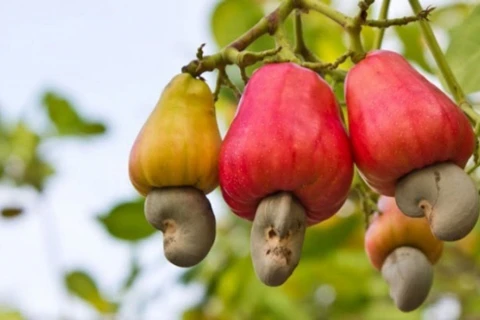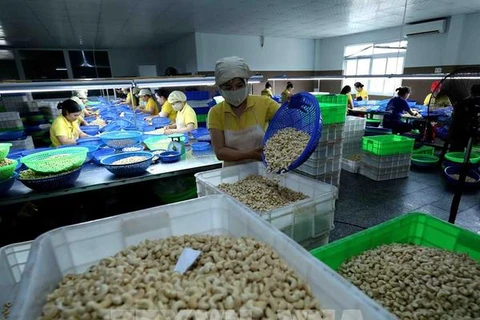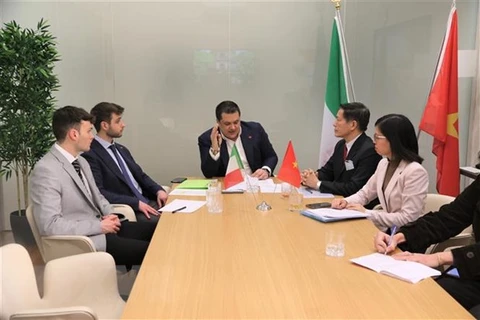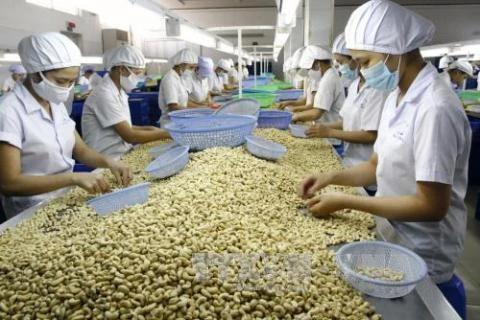Hanoi (VNA) – While a probe is still underway on the suspected cashew nut document scam in Italy, the Ministry of Industry and Trade (MoIT) recommended Vietnamese exporters double-check the credibility of foreign buyers through multiple channels.
First of all, exporters must confirm customer verification, Tran Thanh Hai, Deputy Director-General of the MoIT’s Agency for Foreign Trade, told Vietnam News Agency. Even if they have done business with a customer several times, the process must be undertaken each time, he said.
Customer verification can be done through Vietnamese Trade Offices overseas or consulting services, depending on the market they are dealing with, Hai suggested.
Secondly, he continued, Vietnamese businesses should have a greater hand in contract drafting, which enables them to have a strong understanding of contract terms, particularly responsibilities and obligations, as well as compensation. He emphasised the importance of getting a better handle on the contractual process in case legal disputes occur.
There is a high possibility original documents were seized illegally before reaching the buyer’s bank in this case, he added. The exporters should not provide the documents or their code numbers to buyers until payment is made.
According to previous reports, Vietnamese exporters are at risk of losing hundreds of millions of USD because they have yet to receive payment as agreed for the shipment of 100 containers of cashew nuts to Italy.
Dozens of original documents, needed for shippers to release the containers, have gone missing. Some containers have arrived in Italy while others are on the way.
The sellers reported that there are changes made to the SWIFT code in the collection documents sent from Vietnamese banks to those allegedly representing the importer in Turkey. The Turkish banks declared the buyer is not their client and said they had returned the documents, without specifying how they were returned nor providing Vietnamese banks with bills of lading.
Meanwhile, the buyer’s bank in Italy said it had received only copies of the bills of lading, not the original versions, so payment cannot be processed. This has sparked rising concerns among the Vietnamese exporters as the original documents have been lost and could be used illegally for release of the goods.
Suspecting it is a scam, the Vietnam Cashew Association (VINACAS) has sent an urgent notice to the Embassy and the Trade Office of Vietnam in Italy requesting for help. The association urged the Vietnamese missions to coordinate with competent authorities in Italy and the carriers to delay the release of the cashew nut containers.
The MoIT has stepped in to help Vietnamese cashew nut exporters handle the suspected scam in Italy. The ministry has ordered the Vietnamese Trade Office in Italy to pay fact-finding visits to the ports of Genova and Napoli and discuss with the port operators and local authorities as well as concerned shipping lines and banks, Hai said.
Upon request from the Vietnamese trade office, the carriers have agreed to temporarily halt the release of the goods until the case is brought to light, according to Hai. Additionally, it has helped the Vietnamese firms seek consultation from Italian lawyers and take legal steps to gain control of the consignments.
The ministry has also asked for help from the Embassy of Italy in Vietnam as well as the Italian Minister of Foreign Affairs and International Cooperation and Minister of Economy and Finance to promptly settle the case, thus protecting legitimate rights of Vietnamese exporters and reputation of Italian firms
























